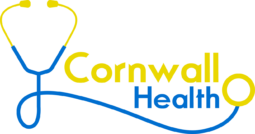
Statistics suggest that the majority of British people lose their lives to one of three killer diseases; these include coronary heart disease, strokes and cancer.
The following articles will outline the symptoms of these illnesses as well as offering advice on how to reduce the possibility of suffering from one of these illnesses.
Coronary heart disease
Coronary heart disease contributes to thousands of deaths each year, making it one of the most dangerous health conditions.
Causes of heart disease
There is no one cause of heart disease; however, there are several contributing factors which include poor diet, lifestyle choices, family history, smoking and drinking heavily and being overweight.
Symptoms of heart disease
Heart attacks: these are caused by a blockage in the arteries, which prevents the blood from flowing freely around the body. An artery which is completely blocked will usually lead to a heart attack (myocardial infarction). Heart attacks are usually characterised by a shooting pain in the chest as well as nausea and vomiting, sweating, dizziness and difficulty breathing.
Heart palpitations: these can be caused by a number of different things and may not be serious; however you should arrange to see your GP to make sure there aren’t any serious problems. Heart palpitations often cause an irregular heart beat and a racing pulse.
Angina: angina is a feeling of pain in the chest area; it can be mild or severe. Severe angina may lead to tightening in the chest as well as other areas in the body including the arms, neck and back. Most people who suffer with angina have medication which quickly eases the symptoms.
Treating coronary heart disease
Most people who are diagnosed with heart disease take a number of different medications according to the severity of their individual case; these commonly include anti-coagulants, beta blockers, statins and tablets to make the blood thinner.
In more severe cases, a surgical procedure may be carried out to relieve the symptoms of heart disease; examples of these include a coronary angioplasty, a coronery artery bypass and a heart transplant.
An angioplasty is carried out to open up a blocked artery, while a heart bypass involves manipulating the blood flow in order to bypass the affected area of blocked artery.
Heart transplant surgery is very rare and involves inserting another heart into the body; this is an extremely complex procedure.
Preventing coronary heart disease
You will dramatically reduce the likelihood of suffering from coronary heart disease if you eat healthily, exercise regularly and refrain from making harmful lifestyle choices.
You should try to eat a healthy and well balanced diet and exercise regularly; this will ensure you take in a range of minerals, vitamins and nutrients, keep your weight stable and allow your joints and muscles to work effectively and efficiently.
You should also try to refrain from drinking heavily, taking drugs and smoking, as this will affect the health of your heart and could potentially be very harmful.
